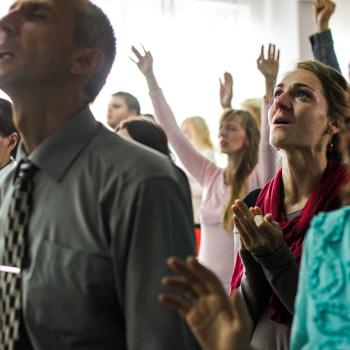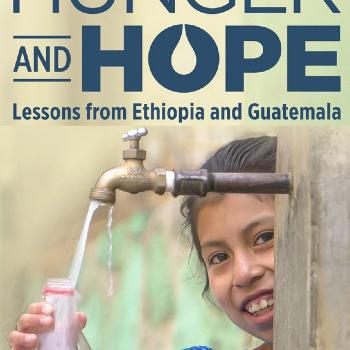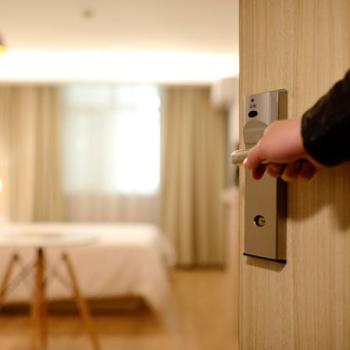There is a polarizing force in divorce that attaches itself to religion. Religion helps to soothe the jangled soul of the newly single parent, creates automatic community and home. So divorce drives us into the bosom of faith. But for a kid who has grown up with one set of rules and signifiers, the sudden shift, the change in terms, can be brutal. At a time when things are already baffling enough.
Which is why I've developed the horrible question-to-end-all-questions. The worst-case scenario. To give people a glimpse of where things might end up. But of course nobody can do it. Nobody can ask this question of their new marriage before they even have the kids. Nobody can bring themselves to demand this thing. It's too scary. To speak these words is to invite disaster in any number of ways. I understand that.
Still, I think that we must come as close as we can. We must each, for ourselves, engage with the question, and understand how far we are willing to bend religiously to be with someone else. From this place we must try to broker a deal about our kids before we have them, hard as that is to do. Then we must learn to stand by and swallow our own needs as adults, for the sake of constancy in the lives of our children. That's the hard part of intermarriage. Not everyone will end up there, but everyone might.
After the recent Reyes debacle, in which a divorced intermarried father baptized his daughter in the Catholic Church, I received emails from a few people who wanted to know why I hadn't responded to the case on my blog, or even mentioned it in Facebook or Twitter. People wanted to know why I had been completely silent on the subject. The truth is that it just made me so sad. I don't think it's the kind of story that represents most of us. So much of it is upsetting -- the early media involvement, the question of mental illness, and the extremity of that particular divorce. I don't want to feed the frenzy of fear-mongers. "See, this is what intermarriage leads to." When I googled "man baptizes daughter," the first hit I got was for a White Pride site. I don't like to play ball with people like that.
But now, I can't help reflecting on the situation and thinking that what upsets me most is not that Joseph Reyes took his kid to church. What upsets me most is that he was a Jew! He'd converted. I can't help wondering if maybe that contributed to this awful scenario somehow. Clearly he wasn't a Jew in his heart. He was the furthest thing from it. I wonder at how that incongruity affected him as his life unraveled and anger replaced love.
And I can't help but wonder about the years before his marriage, before his daughter's birth. I can't help but imagine the grandparents, who might very well have met me at a book event and asked me, "What can we do to get him to convert?"
The pressure that we, as a Jewish community, place on conversion and absorption, on quieting the multitude of non-Jewish voices in our midst is a problem for me. I fear it is leading, in some ways, to a kind of dishonesty in our cultural identity, an incongruity. Not unlike the incongruity in Joseph Reyes. If this is so, the path ahead bothers me. Since, being an "expert" and all, I know where it leads.
This article was first published at Killing the Buddha, a Patheos Partner, and is reprinted with permission.
Laurel Snyder is a contributing editor to Killing the Buddha, the editor of Half/Life: Jew-ish Tales from Interfaith Homes, and the author of a poetry collection, The Myth of the Simple Machines. She's also written several books for children, including the forthcoming title, Baxter, the Pig Who Wanted to Be Kosher. She lives online at LaurelSnyder.com.




